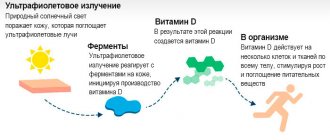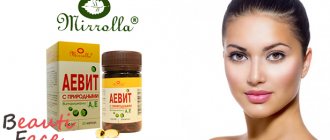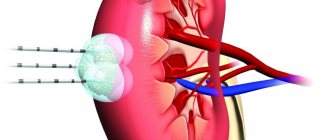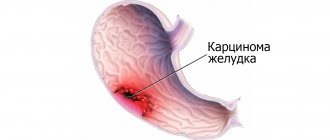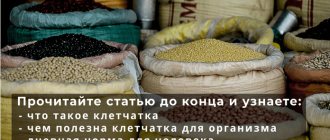A little history
Vitamin U, aka S-methylmethionine, aka methylmethionine sulfonium, aka anti-ulcer factor, was discovered in the middle of the last century in the USA. Then the researchers noticed that the juice of some vegetable crops prevented or restrained the development of peptic ulcers in chickens. Scientists came to the conclusion that the ulcer was caused by a lack of elements that the body receives only from food. That is, the body itself cannot produce this element, not only in chickens, but also in humans.
Why "U"? In Latin, “ulcer” sounds like “ulcus”, and the substance was named after the first letter.
Scientists are still deciding whether to classify it as a vitamin or not. Therefore, this element was previously called vitamin-like. He is now excluded from this group.
Probably every person reading this article has ever experienced difficulties with the gastrointestinal tract. The fact is that the main beneficial property of vitamin U is its pronounced ulcer-healing effect and beneficial effect on gastric juice.
Is it possible to do without this vitamin? Can. After all, the body can extract the effects inherent in vitamin U from other substances. But it is better that it is present in your diet, and, therefore, in the body always. Moreover, the products that contain it are obscenely accessible.
Causes of vitamin deficiency
Among the main reasons for the development of vitamin deficiency, scientists call impaired absorption of fat-soluble vitamins in the intestines. This is due to the fact that the flow of bile into the intestines abruptly stops (in particular, with a disease such as obstructive jaundice).
An interesting fact is that under normal conditions (maintaining physical fitness, proper sleep patterns, balanced nutrition), vitamin K deficiency practically does not occur. This is due to the constant production of the element, albeit in small quantities, by intestinal bacteria.
What foods contain vitamin U?
The hero of our story can be found in raw, unprocessed vegetables, where it is found in large quantities. If you want your entire body to function well without failures, load up on fresh cabbage, beets, parsley, tomatoes, bell peppers, all kinds of edible greens, fresh milk and raw yolk.
The vitamin can also be found at the pharmacy. Vitamin U is obtained synthetically from cabbage juice in the form of small crystals. The artificial compound is white, sweet and, they say, does not smell very nice.
In our country, vitamin U preparations were produced back in Soviet times. It was extracted by extraction from fresh cabbage juice, which contains this substance. To do this, fresh cabbage was crushed and pressed under high pressure of 150 atmospheres. The liquid thus obtained was filtered, lactose was added and the whole thing was dried, thus obtaining a powder. This is why the drug has a sweetish taste.
Why does the body need vitamin U?
Eat more vegetables if you suddenly feel sad. It turns out that our vitamin U can help here too. Have you ever heard that the notorious cholesterol turns out to affect our mood? So, S-methylmethionine is able to regulate cholesterol metabolism in the body. Moreover, its use can help in cases where traditional remedies are powerless to get rid of a minor mood of unknown etiology.
Vitamin U in tablets in the required dosage is prescribed when the body requires it in the treatment of peptic ulcers - it heals the mucous membrane, reduces high acidity in the stomach or, conversely, increases it when it is pathologically low.
Vitamin U is able to identify substances harmful to the body and neutralize them. If you, having eaten something, then suddenly realized that it was not the first freshness, and at the same time, after a while, you were not overtaken by diarrhea, most likely, a sufficient amount of this vitamin in your body helped you with this .
S-methylmethionine preparations are also effective in the treatment of chronic hepatitis.
This substance also improves lipid metabolism, preventing the formation of cholesterol plaques and plaques. The same ability of the vitamin to influence fat metabolism can facilitate the work of the liver, especially the liver of fast food and fried food lovers.
Contraindications
Vitamin K is not as harmless as it might seem. It is contraindicated in people taking anticoagulants and who have an increased risk of blood clots. This is due to the fact that when combined with it, these drugs increase the risk of blood clots.
Also, vitamin K is not prescribed to patients who suffer from allergies and have increased blood clotting and sensitivity to the drug.
A detailed consultation with your doctor is required if you have been prescribed vitamin K. The instructions for use of the medicine will help you determine the correct dosage.
Dosage
Scientists have determined the approximate amount needed by the average human body per day to be 100 or 200 milligrams. Athletes are prescribed double doses during training; the dose may be increased during competitions.
It is almost impossible to achieve an overdose, or hypervitaminosis, because vitamin U dissolves well in water and is easily expelled from the body by the kidneys.
It is quite difficult to determine that the body lacks vitamin U. Most likely, a shortage occurs if a person ignores vegetables or plant-based products in general. A deficiency can manifest itself in an increase in the acidity of gastric juice, which can lead to irritation of the mucous membrane and the occurrence of various ulcers and erosions.
Daily dose
The recommended intake of vitamin K at different ages for women and men is shown in the table.
| Age | For men (mcg/day) | For women (mcg/day) |
| Up to six months | 2 | 2 |
| 7-12 months | 2,5 | 2,5 |
| 1-3 years | 30 | 30 |
| 4-8 years | 55 | 55 |
| 9-13 years | 60 | 60 |
| 14-18 years old | 75 | 75 |
| After 19 years | 120 | 90 |
| Pregnancy before 19 years of age | — | 75 |
| Pregnancy after 19 years | — | 90 |
| Nursing women under 19 years of age | — | 75 |
| Breastfeeding after 19 years | — | 90 |
Vitamin U as a remedy against allergies
Why do allergy sufferers need it? With the discovery of this compound, those suffering from hay fever, that is, those who sneeze, cough, shed tears when the flowering period begins, suffer from bronchial asthma, and various types of food allergies have found hope. Vitamin U helps relieve symptoms of these conditions. How?
Does the word “antihistamine” mean anything to you? So, histamine in the body is a substance whose production increases, for example, when the body begins to fight, due to various pathologies, with “enemy” invaders, as it seems to it. And tries to remove them from the body. This is how allergies manifest themselves. And vitamin U can neutralize histamine. It “methylates” it. Methylation is a simple chemical process in which a methyl group—a carbon atom and three hydrogen atoms—bonds with other molecules.
Thus, the substance also has analgesic and healing effects. Therefore, it is also applicable in the treatment of skin diseases.
Interesting features
Vitamin U is neutral in relation to other substances, so it interacts well with them. It is perfectly absorbed by the body, and no other substances interfere with this. But for the vitamin to enter the bloodstream, the stomach must have a sufficiently acidic environment. The lower the acidity, the less vitamin will enter the blood.
It is used to treat not only people, but also animals. The drug is used for the prevention and treatment of animals in agriculture. In this area it also has no special contraindications or side effects.
The fact that most people haven't heard much about vitamin U suggests that it is still poorly understood. And in view of this little knowledge and obvious promise in terms of benefits, scientists continue to study this substance in order to clarify its properties and expand its scope of application. Perhaps new preparations containing vitamin U with more advanced formulas will soon appear.
Fans of alcohol and cigarette smoke especially need this element, since substances that are harmful and toxic to the body completely wash it away.
Let's sum it up
We found out how vitamin U is useful and what role it plays in regulating the functioning of the entire body.
People with a predisposition to peptic ulcers should consider using medications with this compound. Remember that any disease is easier to prevent than to treat. Therefore, healthy people will also benefit from using the vitamin for preventive purposes. Ask a qualified doctor about how to take it correctly, in what doses, for how long, and about contraindications.
Judging by the reviews, vitamin U is really little used now, it has too many competitors, but this does not diminish its advantages. The use of a vitamin or, for example, cabbage juice for peptic ulcers shows good results without relapses, in combination with strict adherence to the diet and other doctor’s recommendations. Those suffering from stomach ulcers and taking the vitamin note an improvement in their condition and a decrease in pain. True, the unpleasant smell adds a fly in the ointment, and therefore it takes time to get used to.
Medicines and vitamin complexes
Vitamin K2 forms two chemical modifications: MK-4 and MK-7. They are practically the same, but MK-7 has better bioavailability. There is a synthetic form called K3 (the drug Vikasol). You should take it with extreme caution, having first consulted with your doctor.
Russian pharmaceutical companies do not produce this component, so we turn our attention to imported drugs containing vitamin K2:
- VITA K2 (Eurocaps Ltd) is a British dietary supplement that is used to treat the heart and blood vessels, for fractures, and in childhood for the formation of the skeleton. Contains flaxseed oil and vitamin D3.
- Natural Vitamin K2 (Swanson) contains only vitamin K2 tablets, and the absorbable version is MK-7. The medicine is obtained from natto soybean.
- Vitamin K2 (Source Naturals) is an American “3 in 1” product that contains K2, calcium and D3 isolated from milk and soy. Used to strengthen bones and teeth.
- MK-7 (Now Foods) is suitable for vegetarians because it is made from alfalfa sprouts and Japanese soy cheese. Contains the daily dose of menaquinone. Not suitable for children.
- Viva-K2 Vivasan (Dr. Duenner) - a drug developed in Switzerland, contains K2 and D3. It contains sunflower oil, which cleanses blood vessels, and flaxseed oil, which restores the functioning of the gastrointestinal tract.
- Vitamin K2 (Dr. Mercola) contains a “killer” dose of menaquinone: 150 mcg per capsule. Derived from chickpeas, it is therefore recommended for people with soy allergies. It is one of the well-known and popular drugs.
Taking K2 and D3 together enhances their effect, and vitamin E is an antagonist that negates the benefits of the compound we need. Vitamins E and K should be taken separately and at different times.
